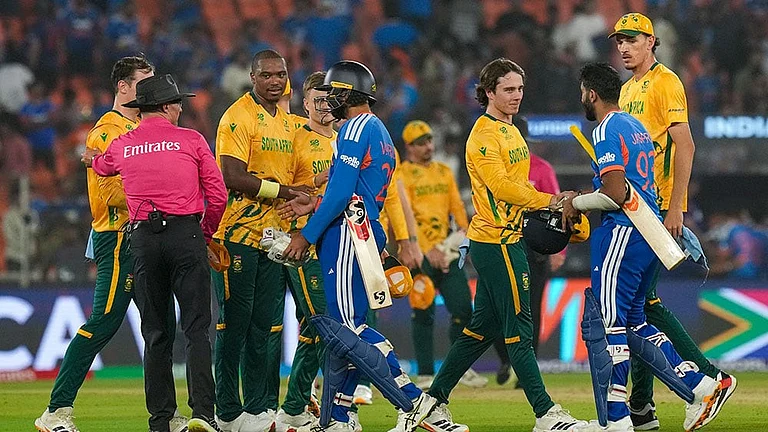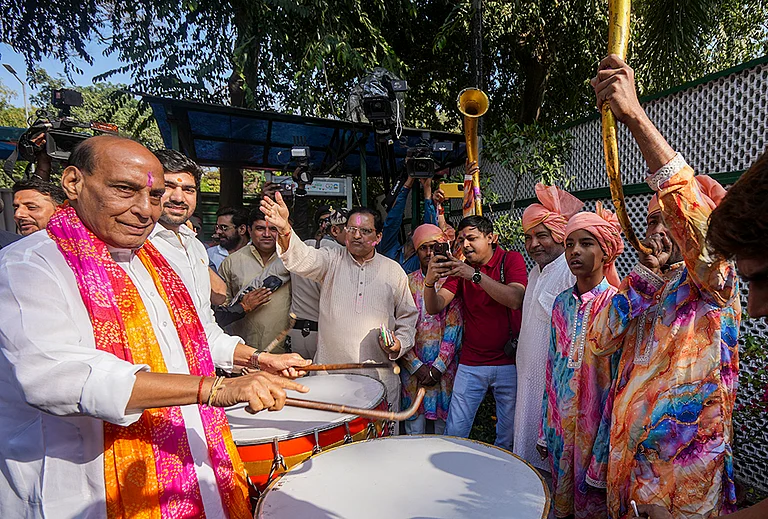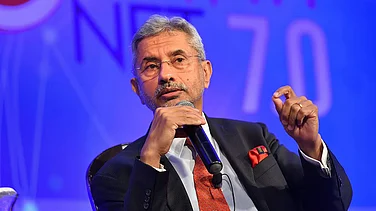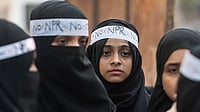Political posturing has been a trigger in the border dispute between Maharashtra and Karnataka over the ownership of Belgaum, which is presently in Karnataka. Though both states have BJP governments, in Maharashtra it is in coalition with Balasahebanche Shiv Sena, and the recent stand-off between the two states has compounded the dispute. Politicians of every hue representing a slew of political parties from both sides of the divide are driving the dispute of which state owns Belgaum. It is a dispute that has spanned decades.
In response to the cacophony of political voices, various organisations have converged at the border areas between Maharashtra and Karnataka and unleashed violence. Karnataka stopped state transport buses from Maharashtra from entering its borders and Maharashtra responded with equal fervour. Some state buses were burnt, some drivers roughed up and the common man who travels between the states in these buses was inconvenienced. Political hooliganism fanned by the rhetoric of political leaders drove the vandalism. Karnataka went a step further and issued prohibitory orders for a ministerial panel from Maharashtra that was to visit the state to discuss the dispute and possible solutions. The ban on the entry of ministers from Maharashtra added more power to the angry voices backing the dispute.
The dispute has its roots in the period after the States Reorganisation Act, of 1956 which divided the states into linguistic and administrative lines and made Belgaum and 10 talukas of Bombay State a part of the then Mysore State. In 1973, Mysore State was renamed Karnataka.
Belgaum was originally a part of the erstwhile Bombay Presidency which was a multi-lingual province. The districts Vijayapura, Belgavi, Dharwad and Uttara Kannada which are a part of Karnataka were earlier a part of the Bombay Presidency. After the Independence of the country, Belgaum came under the Bombay State. According to the 1881 census, 64.39 per cent of people in Belgaum were Kannada speakers, while 26.04 per cent spoke Marathi. In the 1940s Marathi speaking, politicians dominated Belgaum and requested that it be included in the Samyukta Maharashtra state.
While Maharashtra refers to the place as Belgaum, Karnataka calls it Belgavi. The then chief minister Uddhav Thackeray had in January this year put into the public domain that his government would get those border parts of Karnataka where the Marathi-speaking population was in a majority into the Maharashtra fold. Earlier in 2019, then deputy chief minister Ajit Pawar had referred to the dream of the late founder of the Shiv Sena Balasaheb Thackeray to integrate Belgaum, Nipani and Karwar with Maharashtra. The Shiv Sena has been at the forefront of raising the border issue with Karnataka and agitations have become a common occurrence at the border between the two states. In 2017, the then Maharashtra Government launched a new logo for all its interstate buses with the words ‘Jai Maharashtra’ in it, after a Karnataka minister had objected to the ‘Jai Maharashtra’ slogans raised by activists in Belgaum.
In the politically shrill voices emerging from Karnataka is that of their deputy chief minister Laxman Savadi. Adding a new twist to the dispute Savadi has proposed that Mumbai be made a part of Karnataka and until that does not take place, Mumbai should be declared as a Union Territory by the Centre. He had also said, in January this year, that the Karnataka Government would write to the Centre requesting the latter to make Mumbai a Union Territory. Successive governments in Maharashtra have extended support to the state’s claim over Belgaum, Karwar and Nipani. There is also an ongoing case between the two states over the claims made by both Maharashtra and Karnataka over the border areas of Belgaum, Karwar and Nipani.
The Mahajan Commission was set up in 1966 under former chief justice Mehr Chand Mahajan to study the dispute and provide a solution. The Commission had in its Report, released in 1967, granted 264 villages in the disputed region to Maharashtra and 247 villages to Karnataka. However, the Commission had ruled that Belgaum should stay with Karnataka. Maharashtra rejected the Report, while Karnataka demanded the status quo. Maharashtra has also staked claim to 814 Marathi-speaking villages which are now a part of Karnataka.
From the 1980s to 2005 the Belgaum civic body passed numerous resolutions calling for a merger with Maharashtra. The border conflict has flared up recently as the case was due for hearing in the Supreme Court. It had been listed for November 30 but had not come up for a hearing. Prior to the date of the hearing, a stand-off started between the two states.
CM Bommai had expressed his confidence in winning the legal case in the SC triggering a wave of reactions from the political leaders in Maharashtra. Bommai had also said that his government was committed to taking care of the Kannadigas living in Maharashtra, Telangana and Kerala. The murmured reactions from the Maharashtra Government saw Shiv Sena Uddhav Balasaheb Thackeray MP Arvind Sawant take it to the task. “This government has lost the trust of the people. Prime Minister Narendra Modi must make his stand clear on the border issue between Maharashtra and Karnataka,” he said. The former chief minister and head of the Shiv Sena (UBT) Uddhav Thackeray too felt that Modi needed to clarify his stand on the dispute.
Meanwhile, Maharashtra Navnirman Sena chief Raj Thackeray warned the Karnataka CM against making inflammatory speeches. “The Marathi people will stand up if Bommai does not guard his tongue,” said the MNS chief to the media. “I wonder why this issue keeps coming up from time to time,” he said.
In November this year when violence had gripped the border areas between the two states, NCP chief Sharad Pawar castigated Bommai for “instigating violence”. Pawar had threatened to rush to Belgaum to extend support to the Marathi-speaking people there.
The escalation started some days before the SC was slated to hear the petition pertaining to the dispute. On November 22, Karnataka chief minister Basavaraj Bommai told the media that some villages in the Sangli district of Maharashtra wanted to merge with Karnataka. On November 23, the Maharashtra deputy chief minister told the Karnataka Cm that not a single village from Maharashtra would be merged with Karnataka. Fadnavis had also stated that Maharashtra will fight hard to get the Marathi-speaking villages presently in Karnataka back to Maharashtra. On November 24, CM Bommai stated that the Kannada-speaking villages in Akkalkot and Solapur, in Maharashtra, should be merged with Karnataka.
On November 29, a Maharashtra ministerial panel said that they will visit Belgaum on December 3 to hold talks with the Maharashtra Ekikaran Samiti on the border issue. They later postponed the visit to December 6. However, on December 3, the Karnataka Government asked its counterpart in Maharashtra to hold a ministerial visit to Karnataka. Even as Maharashtra Government had decided to postpone the ministerial visit, the Karnataka Government issued prohibitory orders barring the entry of Maharashtra ministers – Chandrakant Patil and Shamburaje Desai – into Belgaum.
With Karnataka Assembly polls slated for 2023, this border issue will be kept simmering, said Raj Thackeray.






















